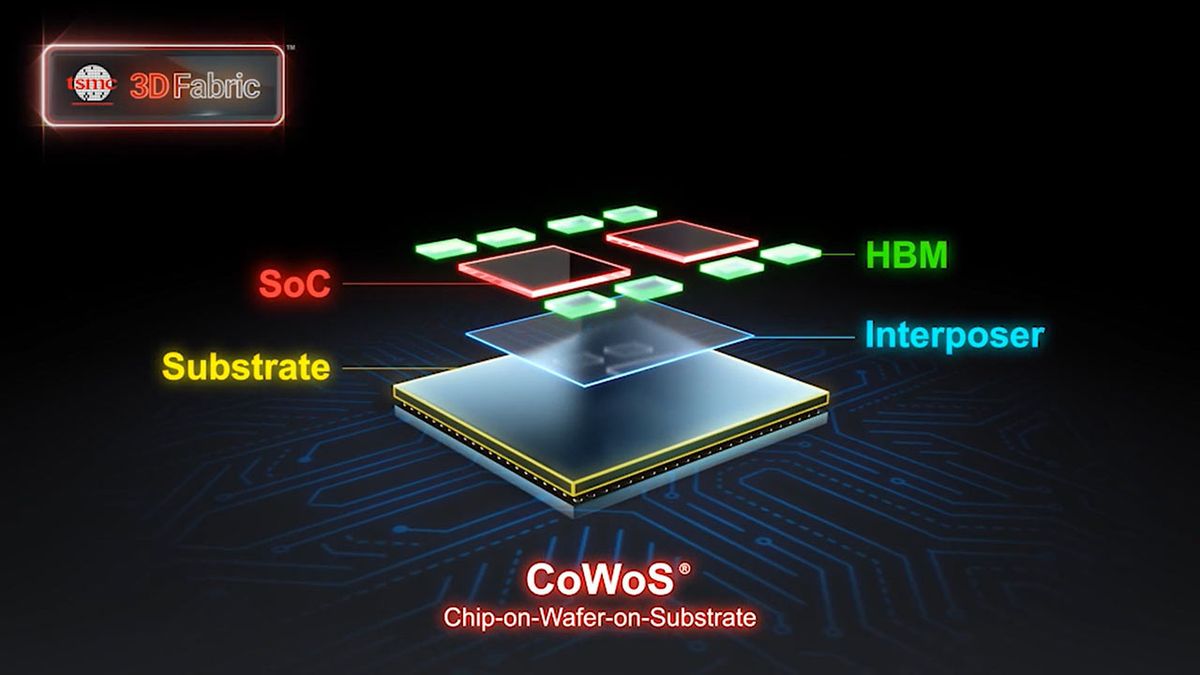The rapid advancement of microchip technology has reached a crucial point where further miniaturization of chips is becoming increasingly challenging. As a result, the focus has shifted to the development of advanced packaging technologies. Taiwan Semiconductor Manufacturing Company (TSMC) has emerged as a game-changer in this field with its advanced packaging technology, which has far-reaching implications for both circuitry and U.S.-Taiwan relations.

TSMC, a world-renowned manufacturer of microchips, has recently announced its plans to aggressively expand its manufacturing capacity for Chip-on-Wafer-on-Substrate (CoWoS) technology. Advanced packaging, which involves the linking, encasing, and protection of tiny silicon chips, plays a fundamental role in ensuring the stable operation of smart artificial intelligence (AI) devices and other high-end applications. Interestingly, packaging was historically considered a less prestigious task, resulting in its relocation from the U.S. to Southeast Asia, China, and Taiwan.
Moore's Law, formulated by Intel co-founder Gordon Moore in 1965, states that the number of transistors on a microchip doubles approximately every two years. However, this law is no longer applicable, and shrinking microchips has become increasingly difficult. Advanced packaging techniques have come to the forefront to enhance processor performance without further shrinking chip transistors. Among these techniques, CoWoS has been developed by TSMC to manufacture computing chips such as Nvidia's A100 and H100, which power various AI applications.
CoWoS technology enables the packaging of multiple chiplets into a single package, resulting in significant performance and efficiency improvements while reducing energy consumption. It effectively addresses the technical challenges associated with current multi-chip arrangements. Currently, TSMC faces a shortage of CoWoS chips to meet the increasing demand. However, the company plans to alleviate this shortage within the next one and a half years through expanded production.
TSMC's Chairman Mark Liu emphasized the critical role of semiconductor technology in the era of AI, where technological superiority directly translates into geopolitical influence. He likened the journey of semiconductor technology to walking through a tunnel, with the focus on shrinking transistors for the past 50 years. Now, as technology becomes more challenging to develop, he highlighted the abundance of possibilities that lie ahead in the future.
TSMC's commitment to maintaining a competitive edge in cutting-edge manufacturing is apparent through major investments in chip foundries in the U.S. Given the crucial role of technology in U.S.-China competition, the success or failure of these investments, particularly in advanced packaging, holds significant geopolitical significance.
TSMC's forward-thinking strategies and early initiation of advanced packaging programs like CoWoS, as early as 2009, have set the company apart in the semiconductor industry. The CoWoS technology plays a critical role in the manufacturing of advanced chiplets for companies like AMD and Nvidia, making these firms highly reliant on TSMC for high-volume and cost-effective production. Moreover, CoWoS is in high demand for chips requiring intense computational power, such as those used in AI applications by industry giants like Microsoft, Amazon, Google, and Intel.
Continued investments in chip manufacturing, particularly in advanced packaging, not only make AI applications more viable but also amplify their potential impact across various sectors. For instance, in healthcare, AI-driven diagnostics and personalized treatment plans can become more precise and affordable. In terms of national security, real-time data analytics powered by AI can provide actionable insights during critical missions. As traditional chip development faces increasing difficulties, CoWoS represents a strategic shift towards advanced packaging, a transition that prominent industry leaders like AMD's Lisa Su have already recognized and supported.
This innovative approach to semiconductor architecture is more than just a technological reconfiguration; it also introduces a pivotal element in U.S.-Taiwan relations. The evolving situation highlights the intensified efforts by the United States to attract Taiwan's advanced semiconductor capabilities, especially in technologies like CoWoS. It is crucial for both parties to handle the negotiations delicately and with mutual respect to avoid missing out on a transformative opportunity.
As TSMC expands its investments in the U.S., the convergence of cutting-edge CoWoS technology, diplomatic considerations, and corporate interests is shaping a transformative geopolitical landscape that demands close attention from all involved parties.







